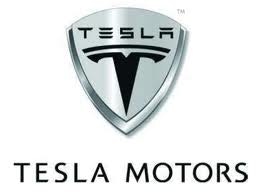Tesla Motors Inc (NASDAQ:TSLA) announced a few days ago that the sales of its Model S vehicle exceeded the target provided in the mid-February shareholder letter. Vehicle deliveries were 4,750 units, exceeding the prior outlook of 4,500 units. As a result, Tesla is amending its Q1 guidance to full profitability, both GAAP and non-GAAP.

Tesla is optimistic about achieving gross margin of 25% by the end of 2013. If that happens, Tesla Motors Inc (NASDAQ:TSLA)’s stock should see a decent upside. This article will focus on Tesla’s long-term growth drivers and competition from hybrid car manufacturers.
Tesla’s long-term growth drivers
Tesla manufactures battery operated electric cars, which are expensive and yet to become mainstream. But Tesla Motors Inc (NASDAQ:TSLA)’s prospect is bright due to the following four factors:
1. Lithium-ion battery prices decreasing
Prices of automotive lithium-ion batteries have fallen about 15% every year for the past three years. A study by McKinsey & Company suggests that lithium-ion battery prices could drop another 25% by 2020, suggesting a compound annual price drop of roughly 4-5% going forward.
Tesla has achieved the intended production capacity of 400 units a week (~20,000 units annually). With battery prices falling, Tesla Motors Inc (NASDAQ:TSLA)’s production cost will decrease significantly over the medium to long-term. As a result, the company’s customer base will increase steadily. Gradually, Tesla will become the first company in the world to offer an electric car at an affordable price. Lower costs and higher sales will contribute to increased profitability.
2. Energy density for lithium-ion battery increasing
Tesla’s lithium-ion battery packs come with an energy density of 132 watt-hours per kilogram. Envia Systems recently announced that it developed an automotive-grade battery that can pack up to 400 watt-hours per kilogram, three times Tesla’s current battery capacity. Envia Systems is partially owned by General Motors Company (NYSE:GM), and General Motors Company (NYSE:GM) has the rights to use Envia’s systems.
Last October, California Lithium Battery announced that it had developed a lithium-ion battery technology with up to 525 watt-hours per kilogram of capacity, a fourfold increase over Tesla’s current batteries. California Lithium Battery believes that its technology will be in use within the next two or three years. Meanwhile, it’s not unreasonable to think that Tesla will acquire such a technology for the production of its own electric cars.
3. Charging station buildup increasing
There are currently over 14,000 public electric vehicle charging stations in the United States. By 2017, more than 1.5 million plug-in electric vehicles (PEVs) stations would have been installed along American roadways, with a total of 7.7 million locations worldwide.
4. EVSE prices to drop
Electric vehicle charging equipment prices are still rather high, as such equipment presently is produced by smaller-sized manufacturers. But as the market continues to mature, global electronic companies will enter the field, and such equipment will be produced in large quantity, driving the price down.
“Basic electric vehicle supply equipment will quickly become a commodity. EVSE (electric vehicle supply equipment) prices will fall by 37% through 2017 as costs are driven lower by competition from large electronics companies as well as volume production,” said John Gartner, senior analyst at Pike Research, a marketing and consulting firm, in a 2011 press release.
Tesla vs. competitors
While General Motors, Ford Motor Company (NYSE:F), and other major companies may be making headlines with their new plug-in hybrid cars, Tesla has been selling pure electric cars to the general public since 2008.
Tesla’s cars have no traditional combustion engines. Plug-in hybrids rely primarily on their electric engines within short ranges, but a combustion engine will kick in when the car needs extra power or the battery runs out of juice.
In January, Ford Motor Company (NYSE:F) sold five times as many hybrid vehicles as it did the year before.Bloomberg reported that January was a record month for Ford Motor Company (NYSE:F) hybrid sales. Around 6,000 Ford hybrids were sold in January this year, compared with about 1,200 in January 2012. With such a start, Ford executives anticipate that its 2013 hybrid sales total will blow away its current annual high of 35,496, set in 2010.
Beyond rising sales, two bits of data concerning hybrid purchases are getting Ford particularly excited: as per The Detroit News, a high percentage (70%) of Fusion Hybrid purchases come from “conquest buyers” (consumers who previously drove another car brand, not a Ford); and Fusion Hybrid purchasers tend to be slightly younger than the typical hybrid owner.
Meanwhile, General Motors Company (NYSE:GM) CEO Dan Akerson said that the company is working on a couple of new all-electric cars, one of which will have a 200-mile range. General Motors’ Chevy Volt, a plug-in hybrid, fared better last year with over 23,000 units sold in the United States.
Although consumers are curious about plug-in vehicles like the Chevy Volt, when the time for purchasing comes, the consensus is that the vast majority of buyers will keep on turning to cars that are powered mainly by gasoline.
According to a J.D. Power survey published last year, the majority of consumers (71%) indicated that the next car they buy or lease would be a regular, old-fashioned gas-powered vehicle. Almost one-quarter (23%), meanwhile, said they’d be most likely to purchase a conventional hybrid such as the Toyota Prius or Ford Fusion Hybrid. Only 4% pointed to the plug-in hybrid (Chevy Volt) as the car they’d buy next, and just 2% said their next automobile would be a purely battery-powered vehicle like the Nissan Leaf or Tesla Model S.
Anindya Batabyal has no position in any stocks mentioned. The Motley Fool recommends Ford, General Motors, and Tesla Motors . The Motley Fool owns shares of Ford and Tesla Motors.
